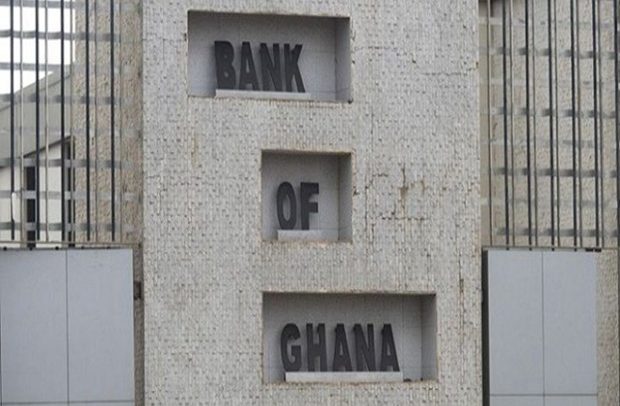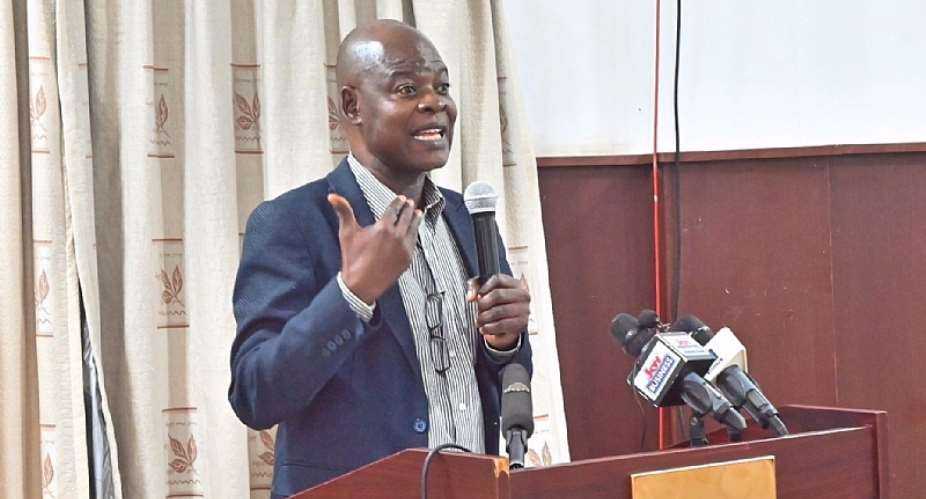
By Joshua Worlasi AMLANU & Ebenezer Chike Adjei NJOKU
The Bank of Ghana is urging lenders to make greater use of risk-sharing mechanisms in expanding credit to small and medium-sized enterprises, which it says remain underserved despite their central role in the economy.
Governor Johnson Pandit Asiama said that risk-sharing models such as partial credit guarantees can reduce the reluctance of banks to lend to SMEs, which often lack collateral.
“In Rwanda, well-governed partial credit guarantees unlocked SME lending and drove job creation,” he said at a workshop on supporting SMEs into global value chains. “In Ghana, tools like GIRSAL must be more actively deployed.”
The Ghana Incentive-Based Risk-Sharing System for Agricultural Lending, known as GIRSAL, was introduced to encourage commercial banks to increase credit for agribusinesses.
Dr. Asiama said the platform has not been fully used, adding that better transparency and governance could help build lender confidence.
SMEs account for about 90 percent of businesses worldwide and provide more than half of global employment, according to World Bank data. In emerging markets, they contribute up to 40 percent of GDP yet face a global financing gap of about US$8trillion. Asiama said Ghanaian SMEs face challenges including lack of affordable finance, difficulties meeting export standards and fragmented logistics.
He argued that risk-sharing must be combined with other innovative financing approaches.
“Our banks must move beyond collateral-based lending,” he said. “Shift toward cash-flow lending, purchase-order finance and supply-chain finance as alternatives that have worked in other regions.”
He added that Ghanaian banks could structure financing around the creditworthiness of anchor buyers in sectors such as cocoa, agro-processing and light manufacturing.
The Governor said development finance institutions – including Afreximbank and the African Development Bank – are already providing blended finance and trade lines that could be scaled up.
He cited Bangladesh’s garment sector as an example where such arrangements enabled rapid expansion.
Dr. Asiama also called on banks to adopt digital tools to reduce transaction costs and improve transparency.
E-invoicing, digital payments and electronic trade documentation, he said, allow lenders to track SME performance in real time while expanding access to finance. Partnerships with fintechs are making such solutions more viable across Africa.
Beyond credit, banks were encouraged to provide advisory support to help SMEs meet sustainability and export requirements.
The Governor noted that international buyers increasingly demand proof of ethical sourcing, traceability and compliance with emissions standards.
“Banks can bundle financing with advisory services, supporting clients in certification, traceability and carbon reporting,” he said.
He linked these efforts to broader reforms aimed at strengthening Ghana’s financial sector. The Bank of Ghana has raised bank capitalisation, reinforced credit information systems and promoted digital finance. It has also rolled out foreign-exchange market reforms to improve transparency and predictability, which he said will help SMEs manage trade transactions more effectively.
“SMEs are the engines of jobs, innovation and inclusive growth,” Dr. Asiama said. “Risk-sharing tools and innovative lending models are not optional, they are necessary to unlock their potential.”
The post Leverage risk-sharing tools to unlock SME credit – BoG to banks appeared first on The Business & Financial Times.
Read Full Story





















Facebook
Twitter
Pinterest
Instagram
Google+
YouTube
LinkedIn
RSS